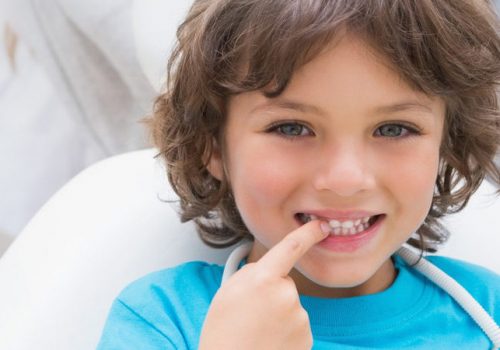Children Dentistry
Taking care of your teeth and gums should begin from childhood, in order to have better long-term results. Younger patients require a special approach for their first visits to the dentist, as well as specific guidance on oral hygiene and care. If at a young age your child achieves good cooperation with the dentist and proper oral hygiene habits, then it is certain that he/she will have better results later in life.

Why Primary Teeth are Important?
Primary (Milk) teeth are important because they contribute to the proper growth of jaws, correct speech, correct chewing and normal overall growth. They keep spaces and lead permanent teeth to their position. They give a beautiful smile and reinforce self-image.
Dental Sealants
A dental sealant creates a highly-effective barrier against decay. Sealant is a thin resin material applied to the chewing surface of back teeth, where most cavities form. The sealant quickly bonds into the depressions and grooves of the teeth, forming a protective shield over the enamel of each tooth. This helps to prevent the onset of decay.
A good age for a first visit to the dentist would be around one year old, assuming teeth have already begun to appear in your child’s mouth. The purpose of the first visit is to communicate with the parents and demonstrate how they should start caring for their child’s teeth. Simultaneously the child begins its gradual adjustment to the clinic, which is ideal, as it is best to start as early as possible.
Children’s teeth are just as important as permanent teeth. First of all they help the child to receive and chew food, as well as assist with speech, therefore in communication with the outside world. Also, baby teeth serve as “guides” to bring the corresponding permanent teeth into place. Therefore it is very important to keep the baby teeth in their correct positions and prevent pre-mature loss due to caries. It is also important to maintain the health of children’s teeth, to prevent pain or inflammation in children mouth, due to caries or abscess, as early as possible.
Prevention starts very early with the appearance of the first tooth, around the age of 6 months. This is done by cleaning all baby teeth that are in the mouth, with a wet gauze or cloth and later brushing with the use of suitable toothpaste, depending on the age of the child. Dentists are qualified to guide you on how to apply the oral hygiene for your child, depending on age and needs. With regard to prevention treatments in the clinic, this includes fluoridation and dental sealants.
It is the application of fluoride to children’s teeth (baby and permanent) to bolster their strength. This helps to provide greater resistance to decay, provided that oral hygiene is properly kept at home. It is a painless and simple process, wherein the fluoride (in a similar form of varnish) is applied to tooth surfaces with a brush.
It is a very effective preventive measure against dental caries. It is a liquid resinous material, that covers the grooves of the occlusal surface of the posterior teeth, where decay usually occurs. This treatment helps by blocking the accumulation of bacteria in grooves and removes the risk of caries on these surfaces.
 English
English Ελληνικά
Ελληνικά Русский
Русский